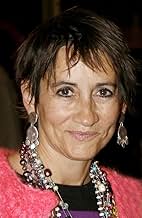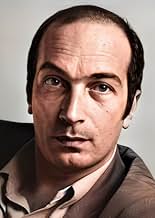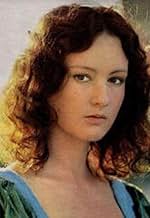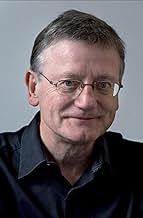La maman et la putain
IMDb RATING
7.7/10
7.4K
YOUR RATING
The chauvinist Alexandre balances relationships with several women in the post-1968 intellectual scene of Paris.The chauvinist Alexandre balances relationships with several women in the post-1968 intellectual scene of Paris.The chauvinist Alexandre balances relationships with several women in the post-1968 intellectual scene of Paris.
- Awards
- 3 wins & 1 nomination total
Jean-Claude Biette
- Un homme aux Deux Magots
- (uncredited)
Jean Douchet
- Un homme au Café de Flore
- (uncredited)
Bernard Eisenschitz
- Maurice
- (uncredited)
Jean Eustache
- Le mari de Gilberte
- (uncredited)
- …
Noël Simsolo
- Un homme au Café de Flore
- (uncredited)
- Director
- Writer
- All cast & crew
- Production, box office & more at IMDbPro
Featured reviews
10yarns
It is not an easy film to watch - it is over three and a half hours long and it is composed entirely of conversations. Yet it is so incredibly compelling and ruthlessly observational of the human character, that it is, in my humble opinion, one of the very greatest films of all time.
The film is depressing, cynical and cruel. (If you want something uplifting, see Jacques Rivette's fantastic Céline and Julie Go Boating, which was made around the same time). It shows the idealism of the late 1960s to be nothing different from the society that it was trying to change.
It involves a supposedly liberated ménage-à-trois between Alexandre (played by Jean-Pierre Leaud), Marie (Bernadette Lafont) and Veronika (Francoise Lebrun). Yet Alexandre is shown to be as chauvinistic and jealous as any other man. The women are exposed as being willingly subservient and defining their femininity through the male gaze.
The film is an extremely icy end to the highly revolutionary French New Wave. This movement was one of the most significant movements in film history and had a profound effect on cinema as we know it. Jean-Pierre Leaud was one of the key actors of the New Wave, having starred (among other films) in the influential Les Quatres Cent Coups (1959) by Francois Truffaut as a rebellious teenager. Director Jean Eustache is not as well known as other directors from the New Wave, but he should be.
There is no improvisation (unlike in John Cassavetes's similar films made in the US) and the dialogue comes from real-life conversations. The film is resonant with Eustache's personal experiences. For example, Francoise Lebrun was a former lover of Eustache. Eustache himself committed suicide in 1981 and the real-life person that the character Marie was based on, did too. The anger and bitterness all culminate in a harrowing monologue by Veronika delivered directly to the audience, breaking down the coldly objective nature of the rest of the film. This mesmerising, personal, and honest filmic statement remains one of the most revealing films of human nature around.
The film is depressing, cynical and cruel. (If you want something uplifting, see Jacques Rivette's fantastic Céline and Julie Go Boating, which was made around the same time). It shows the idealism of the late 1960s to be nothing different from the society that it was trying to change.
It involves a supposedly liberated ménage-à-trois between Alexandre (played by Jean-Pierre Leaud), Marie (Bernadette Lafont) and Veronika (Francoise Lebrun). Yet Alexandre is shown to be as chauvinistic and jealous as any other man. The women are exposed as being willingly subservient and defining their femininity through the male gaze.
The film is an extremely icy end to the highly revolutionary French New Wave. This movement was one of the most significant movements in film history and had a profound effect on cinema as we know it. Jean-Pierre Leaud was one of the key actors of the New Wave, having starred (among other films) in the influential Les Quatres Cent Coups (1959) by Francois Truffaut as a rebellious teenager. Director Jean Eustache is not as well known as other directors from the New Wave, but he should be.
There is no improvisation (unlike in John Cassavetes's similar films made in the US) and the dialogue comes from real-life conversations. The film is resonant with Eustache's personal experiences. For example, Francoise Lebrun was a former lover of Eustache. Eustache himself committed suicide in 1981 and the real-life person that the character Marie was based on, did too. The anger and bitterness all culminate in a harrowing monologue by Veronika delivered directly to the audience, breaking down the coldly objective nature of the rest of the film. This mesmerising, personal, and honest filmic statement remains one of the most revealing films of human nature around.
I put off reviewing it for quite a while; I just couldn't come to terms with its rejection of the New Wave. Eustache has given us the talkiest movie ever, if you except those marathon Rivette films from the same period (I survived a showing of Out One: Spectre).
The camera doesn't move: it is parked in front of the actors in cafes and restaurants. The close camera placement forces us to concentrate on the conversations, which are monologues by Alexandre interspersed with explosions from Veronika. The romantic word-spinning from Alexandre is of this ilk: "The day I stop suffering, I'll have become someone else," or "In May 1968 a whole cafe was crying. It was beautiful. A tear gas bomb had exploded... a crack in reality had opened up," or most poetically, "I don't do anything, I let time do it." The retorts from Veronika are sometimes astonishing in their savagery: "Watch out, you'll push in my Tampax."; "I've screwed the maximum of Jews and Arabs."; (serving tea)"I like the feel of a prick against my ass, even if it's soft. One sugar or two?" It's as if a Proust character somehow left his drawing room to go slumming with a woman out of L-F Celine's Death on the Installment Plan.
This film ought to be seen by anyone interested in French film of that period--the 70's--but be aware of the static, slow-moving nature of the work.
The camera doesn't move: it is parked in front of the actors in cafes and restaurants. The close camera placement forces us to concentrate on the conversations, which are monologues by Alexandre interspersed with explosions from Veronika. The romantic word-spinning from Alexandre is of this ilk: "The day I stop suffering, I'll have become someone else," or "In May 1968 a whole cafe was crying. It was beautiful. A tear gas bomb had exploded... a crack in reality had opened up," or most poetically, "I don't do anything, I let time do it." The retorts from Veronika are sometimes astonishing in their savagery: "Watch out, you'll push in my Tampax."; "I've screwed the maximum of Jews and Arabs."; (serving tea)"I like the feel of a prick against my ass, even if it's soft. One sugar or two?" It's as if a Proust character somehow left his drawing room to go slumming with a woman out of L-F Celine's Death on the Installment Plan.
This film ought to be seen by anyone interested in French film of that period--the 70's--but be aware of the static, slow-moving nature of the work.
The movie carries off the daunting challenge set by its extreme length: the first half or so is essentially a comedy of manners, with Leaud's rampant intellectualism constantly tipping over into borderline absurdity (underlined by the deadpan sketches of his friends and their wantonly do-nothing, posturing world; his manipulation of women almost masterful. But the spectrum shifts to show the psychological complexity beneath the 'whore' - in her long final monologue asserting her humanity and then traveling beyond that to assert the aridness of a relationship that doesn¹t generate children: it's as if the posturing were being ripped apart, as if everything was being reanalyzed from the most basic biology. And that reanalysis elevates the women - they both have careers whereas we¹re never sure how he finances himself; their friendship when it comes seems intuitive to an extent that he lacks, so that he's reduced to moping and grasping at opportunities. The final hour or so is an amazing topography of emotional upheaval, discovery and raw pain. An almost brilliant film that expresses the lie of the facile attitudinizing of the times and has an awesome grasp of psychological ambiguity and rawness.
In Paris, the pedantic Alexandre (Jean-Pierre Léaud) lives with his mate Marie (Bernadette Lafont) in her apartment, an open relationship. Alexandre, who is idle and chauvinist, spends his days reading, drinking and shagging women. After flirting with his former affair, Gilberte (Isabelle Weingarten), who tells him that she will marry soon her boyfriend, Alexandre meets the Laenne Hospital nurse Veronika Osterwald (Françoise Lebrun) and they schedule a date. Alexandre learns that Veronika is a promiscuous woman that loves to shag and introduces her to Marie. They have a threesome and Alexandre has a crush on Veronika.
"La Maman et la Putain" is an overrated and dull French New Wave cult-movie by Jean Eustache about the sexual adventures of a pedantic chauvinist. I do not have the intention to offend the umpteen fans of this director and film, but I really did not like this long film of three and half hours. There are witty dialogs and situations, but in general I found it very dull with empty characters.
The expensive DVD released in Brazil by Lume Distributor is a shameful recording of French television broadcasting with an announcement in the credits. My vote is five.
Title (Brazil): "A Mãe e a Puta" ("The Mother and the Whore")
"La Maman et la Putain" is an overrated and dull French New Wave cult-movie by Jean Eustache about the sexual adventures of a pedantic chauvinist. I do not have the intention to offend the umpteen fans of this director and film, but I really did not like this long film of three and half hours. There are witty dialogs and situations, but in general I found it very dull with empty characters.
The expensive DVD released in Brazil by Lume Distributor is a shameful recording of French television broadcasting with an announcement in the credits. My vote is five.
Title (Brazil): "A Mãe e a Puta" ("The Mother and the Whore")
... is because of films like this.
Don't get me wrong. I like independent cinema, and particularly like good foreign films, but this film could have been cut by at least an hour.
I'll explain.
The film revolves around a self centered young man who professes he loves certain women, but is really looking for someone to love him. Enter a woman who doesn't love herself, but finds this same young man, taps his energy, and both wind up "flowering" for it.
This movie revolves around the sexual morays and politics of a small group of Parisians. The film starts out very strong. Actors present characters in an extended first act that we would like to get to know, but, unfortunately this pic becomes the poster boy for the proverbial "long boring French film" replete with characters who light up cigarettes and talk in either cafés or materially spartan rented rooms about how life should be different, and what it all means. Toss in an Oedipal complex/undercurrent, and you have the quintessential French avante-garde flick.
Huh.
Inspite of this there's some good material in this film, but director Jean Eustache (probably to make up for lack of scheduling and some technical aspects) throws a lot of dialog at the audience that would've have been better served with some visual cues.
All in all it shows how messed up an certain sect of French culture really is, and, perhaps ironically, drives home a realist message regarding the act of coupling.
Technically it's bare bones. Lots of natural lighting is fused with high contrast B&W cinematography, and to add to the rugged feel of the film the scratch track is used. Little to no looping of dialog. You can hear what pros call "room tone" as it was actually recorded during filming.
I could go off the deep end and call this film self-indulgent, pretentious et al, but will say instead that the exposition given to the story was "over-exposed" (for lack of a better term). The symbolism is fine, but a lack of visuals and a borderline in-you-face delivery of certain dialog, hampers what could have been a much better film. By that I don't mean commercially successful nor accessible, but a film that could have delivered the same gists, character and message without the flaunting its strive for artistic excellence.
Don't get me wrong. I like independent cinema, and particularly like good foreign films, but this film could have been cut by at least an hour.
I'll explain.
The film revolves around a self centered young man who professes he loves certain women, but is really looking for someone to love him. Enter a woman who doesn't love herself, but finds this same young man, taps his energy, and both wind up "flowering" for it.
This movie revolves around the sexual morays and politics of a small group of Parisians. The film starts out very strong. Actors present characters in an extended first act that we would like to get to know, but, unfortunately this pic becomes the poster boy for the proverbial "long boring French film" replete with characters who light up cigarettes and talk in either cafés or materially spartan rented rooms about how life should be different, and what it all means. Toss in an Oedipal complex/undercurrent, and you have the quintessential French avante-garde flick.
Huh.
Inspite of this there's some good material in this film, but director Jean Eustache (probably to make up for lack of scheduling and some technical aspects) throws a lot of dialog at the audience that would've have been better served with some visual cues.
All in all it shows how messed up an certain sect of French culture really is, and, perhaps ironically, drives home a realist message regarding the act of coupling.
Technically it's bare bones. Lots of natural lighting is fused with high contrast B&W cinematography, and to add to the rugged feel of the film the scratch track is used. Little to no looping of dialog. You can hear what pros call "room tone" as it was actually recorded during filming.
I could go off the deep end and call this film self-indulgent, pretentious et al, but will say instead that the exposition given to the story was "over-exposed" (for lack of a better term). The symbolism is fine, but a lack of visuals and a borderline in-you-face delivery of certain dialog, hampers what could have been a much better film. By that I don't mean commercially successful nor accessible, but a film that could have delivered the same gists, character and message without the flaunting its strive for artistic excellence.
Did you know
- TriviaThis film is based on the real-life relationship between director Jean Eustache and actress Francoise Lebrun (who plays Veronika). The character based on her is named Gilberte in the movie and is played by Isabelle Weingarten.
- GoofsAlexandre can be seen drinking a bottle of 1970 Gevrey-Chambertin, which would have been far too expensive for him to have purchased. This error is illuminated by his notable lack of money during the cafe scene, in which his date pays for his bill.
- ConnectionsFeatured in Étoiles et toiles: L'érotisme au cinéma (1983)
- SoundtracksIch weiß, es wird einmal ein Wunder gescheh'n
Written by Bruno Balz, Michael Jary and Ralph Benatzky
Performed by Zarah Leander
- How long is The Mother and the Whore?Powered by Alexa
Details
- Release date
- Country of origin
- Official sites
- Language
- Also known as
- The Mother and the Whore
- Filming locations
- Café Les Deux Magots - 6 place Saint-Germain-des-Prés, Paris 6, Paris, France(Alexandre's usual café)
- Production companies
- See more company credits at IMDbPro
Box office
- Gross US & Canada
- $40,555
- Opening weekend US & Canada
- $5,135
- Jun 25, 2023
- Gross worldwide
- $47,344
- Runtime
- 3h 37m(217 min)
- Color
- Sound mix
- Aspect ratio
- 1.37 : 1
Contribute to this page
Suggest an edit or add missing content









































